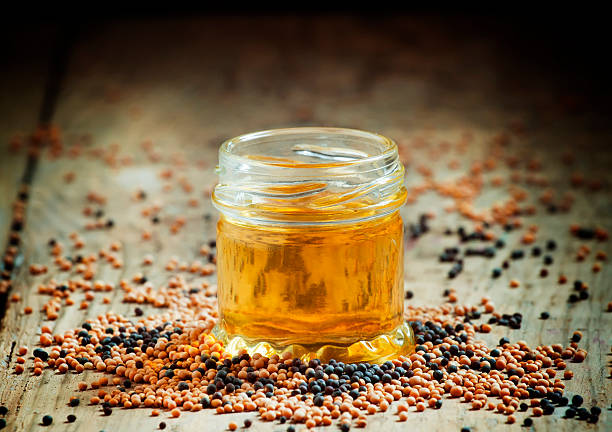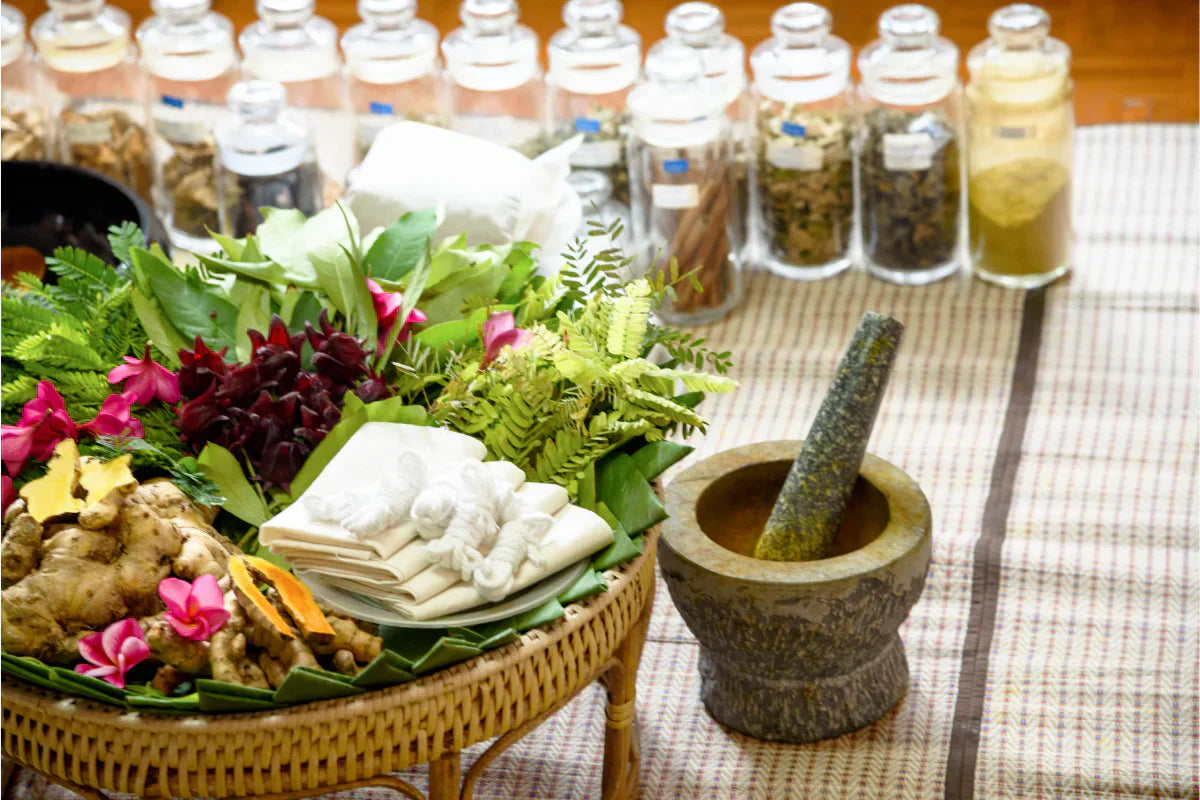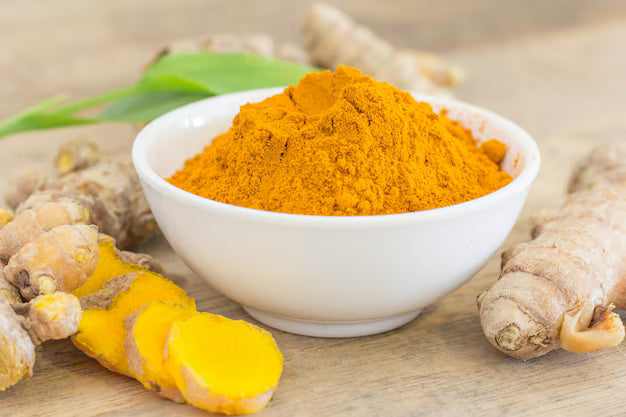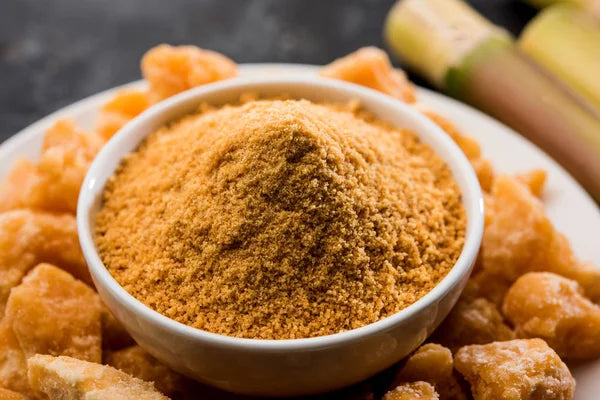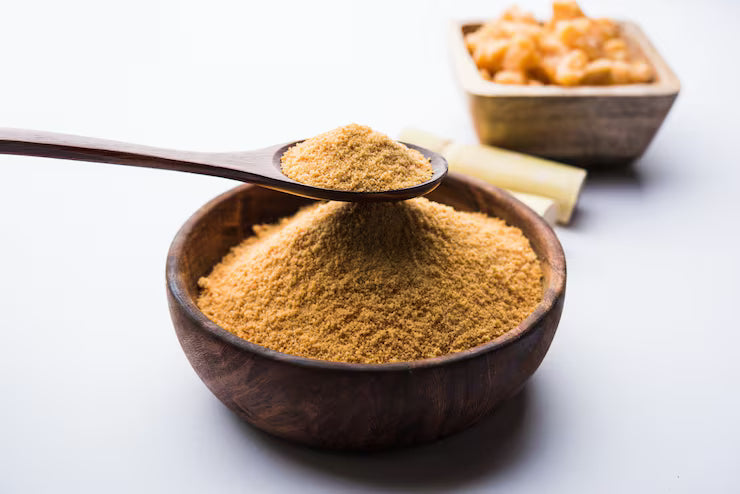Guggul: Benefits, Uses, and Dosage in Ayurveda

Introduction to Guggul (Commiphora Mukul)
Among the vast pharmacopeia of Ayurveda, few herbs hold the exalted position that Guggulu (Commiphora mukul) does. Revered as one of the Divyaushadhis, divine medicines, Guggul is a resin obtained from the small thorny tree Commiphora mukul, found in the arid regions of Rajasthan, Gujarat, and parts of South India.
Its medicinal use dates back thousands of years, with mentions in the Atharva Veda, and detailed therapeutic descriptions in classical Ayurvedic compendiums such as the Charaka Samhita and Sushruta Samhita. The Sanskrit name Guggulu literally means “one that protects against disease.” The gum resin, known commercially as gum guggul or Indian bdellium, is extracted from the bark of the tree and has a characteristic aromatic, slightly bitter taste.
Modern pharmacology identifies Guggul’s oleo-gum-resin as the primary therapeutic agent, a natural mixture of resin, volatile oils, and gums rich in guggulsterones, which are responsible for many of its pharmacological effects, including lipid regulation and anti-inflammatory action.
Ayurvedic Perspective on Guggul
A potent rasayana (rejuvenator) and yogavahi (carries herbs deep into tissues, enhancing efficacy), it is believed to be tridoshic – balancing all three doshas. It is particularly effective in Vata-Kapha imbalances such as respiratory issues, arthritis, and obesity.
Bitter and pungent (has a beneficial post-digestive effect), the resin is light and dry in nature, penetrating the system deeply. The warming resin is clear and flowing in texture.
Freshly collected Guggul is different from the aged resin. The former is sticky and smooth and is known to contain balya (strength-promoting) and vrishya (aphrodisiac) properties. Aged Guggul, on the other hand, is lekhana (internal scraping of toxins), medohara (fat-reducing), and shukranashaka (sperm-reducing) – this makes it beneficial in metabolic and lipid disorders.
In Ayurveda, Guggul is not used as extracted but goes through a purification process – usually through cow’s urine, Triphala, or herbal liquids such as Dashamoola or Guduchi that help to remove impurities, thus enhancing potency and making it easier to digest. This Shuddha Guggul is safe and effective for use in therapeutic process.
Key Benefits of Guggul
1. Weight Management and Metabolic Health
Guggul is a cornerstone herb in formulations like Medohar Guggulu and Navaka Guggulu, used to address obesity and sluggish metabolism. Its Lekhana (scraping) and Ushna (heating) properties help reduce excessive fat tissue, mobilize stored energy, and enhance Agni (digestive fire).
-
Modern view: The active guggulsterones influence lipid metabolism and may enhance thyroid function, leading to improved calorie burning.
-
Ayurvedic perspective: It reduces Ama (toxic metabolic residue) and excess Kapha, promoting a balanced weight and energy system.
Read the blog on the Ayurvedic Path to Natural Weight Loss & Obesity Management.--->
2. Cholesterol & Heart Health
The resin is well-studied for its cholesterol-lowering properties. Guggulsterones, its bioactive compounds, have been found to reduce total cholesterol, LDL (“bad” cholesterol), and triglycerides, while maintaining or improving HDL (“good” cholesterol).
-
Ayurvedic interpretation: By enhancing Agni and scraping Ama from the srotas (channels), Guggul promotes clear circulation and healthy cardiac function.
-
Key formulations: Shuddha Guggul capsules and Arjuna Guggulu are widely used for heart and vascular wellness.
3. Anti-Inflammatory and Joint Support
One of the classical uses of Guggul is in managing Vata-related musculoskeletal disorders such as arthritis, sciatica, and back pain. It forms the base of popular combinations like Yograj Guggulu, Trayodashang Guggulu, and Simhanad Guggulu.
-
Mode of action: Guggul reduces inflammation, swelling, and stiffness while improving joint mobility.
-
Ayurvedic explanation: By balancing Vata and reducing Ama, it alleviates Sandhivata (osteoarthritis) and Amavata (rheumatoid arthritis).
-
Research note: Studies suggest Guggul has comparable anti-inflammatory activity to modern non-steroidal drugs but with fewer side effects.
4. Skin Health and Detoxification
Guggul is known for its Rakta-shodhaka (blood-purifying) and Vrana-ropaka (wound-healing) properties. Formulations such as Kaishore Guggulu and Rasnadi Guggulu are used for acne, eczema, psoriasis, and chronic skin inflammations.
-
Modern studies show its antimicrobial and antioxidant effects aid in faster healing and toxin clearance.
-
Ayurvedic principle: By cleansing the channels and balancing Pitta and Kapha, it clears skin eruptions and supports a healthy complexion.
5. Hormonal and Thyroid Balance
Guggul has a subtle but powerful action on the endocrine system. It stimulates metabolism and helps normalize thyroid function, particularly in cases of hypothyroidism.
Kanchanar Guggulu, combining Guggul with Kanchanar bark, is prescribed for thyroid enlargement, PCOS, and glandular swellings.
Its Ushna Virya and Lekhana actions help dissolve stagnation, regulate hormones, and promote glandular health.
6. Liver Protection and Detox Support
Ayurvedic practitioners often recommend Guggul for liver sluggishness and fatty liver conditions.
Its Tikta and Katu rasas stimulate Agni, enhance digestion, and support detoxification. Guggul’s antioxidant properties protect hepatocytes and aid in fat metabolism, preventing lipid accumulation in the liver.
7. Respiratory and Immune Support
Guggul’s aromatic and expectorant nature makes it useful in Kapha disorders like cough, asthma, and bronchitis. Its antibacterial and immune-boosting effects further support the body’s defense mechanisms.
Types of Guggulu Formulations and Their Uses
In Ayurveda, Guggul is rarely used alone; it acts as a Yogavahi (synergist), enhancing the therapeutic potency of other herbs. The following are some classical Guggulu Kalpas (formulations), each designed for specific conditions:
|
Formulation |
Primary Use |
Specialized Action |
|
Arthritis, joint stiffness, muscle pain |
Reduces inflammation and Vata imbalance, improves flexibility |
|
|
Skin diseases, gout, and blood impurities |
Blood purification, Pitta balance, detoxification |
|
|
Thyroid swelling, PCOS, cysts, tumors |
Reduces glandular enlargement, supports metabolism |
|
|
Sciatica, paralysis, nerve pain |
Strengthens the nervous system, alleviates Vata in nerves |
|
|
Rheumatoid arthritis, toxin buildup |
Detoxifies Ama, anti-inflammatory, purgative action |
|
|
Obesity, lipid disorders |
Scrapes fat tissue, improves digestion and metabolism |
|
|
Chronic pain, musculoskeletal degeneration |
Rejuvenates tissues, reduces inflammation, builds strength |
|
|
Edema, urinary disorders, and kidney support |
Balances fluids, supports the kidney and liver detox |
|
|
Urinary infections, prostate, and kidney stones |
Clears the urinary tract, anti-inflammatory for the renal system |
|
|
Bone fractures, osteoporosis |
Strengthens bones, speeds healing, and mineralization |
|
|
Bone and skin disorders, tuberculosis |
Detoxifies tissues, supports joints, and the lymphatic system |
Each formulation integrates Guggul’s Yogavahi nature, enabling the herbs within to reach their target organs efficiently.
Guggul Dosage and How to Use
-
Recommended dosage: 250 mg to 1 g of purified Guggul (Shuddha Guggulu), taken once or twice daily after meals with lukewarm water or honey.
-
Form: It can be consumed as powder (churna), capsules, or vatis (tablets).
-
Best time: Post-meal, when digestive fire (Agni) is active, to enhance assimilation.
-
Combination: Can be taken with Triphala, Trikatu, or honey for metabolic support, or with milk for joint and bone health.
Important: Guggul should always be used under the supervision of a qualified Ayurvedic practitioner, especially in chronic or systemic conditions.
Possible Side Effects & Precautions
When properly purified and prescribed, Guggul is safe and well-tolerated. However, certain precautions are necessary:
-
Avoid during pregnancy and lactation.
-
Use cautiously in cases of active gastritis, severe Pitta aggravation, or acute liver disorders.
-
May interact with thyroid or cholesterol-lowering medications consult a vaidya before combining.
-
Only use Shuddha Guggul (purified resin), as raw gum may cause nausea or skin rashes.
Excessive or prolonged unsupervised use can lead to dryness, restlessness, or digestive irritation due to its strong Ushna and Tikshna properties.
Conclusion: Should You Include Guggul in Your Routine?
Guggul stands as one of Ayurveda’s most profound examples of nature’s pharmacy, a resin that embodies both cleansing and rejuvenation. Its dual ability to scrape toxins and restore vitality makes it invaluable in addressing modern ailments rooted in poor metabolism, inflammation, and toxin accumulation.
Whether used in Yograj Guggulu for joint health, Medohar Guggulu for weight management, or Kanchanar Guggulu for hormonal balance, Guggul remains relevant across centuries.
However, it is not a daily supplement, it is a therapeutic herb to be used purposefully and under medical guidance. When chosen correctly, purified, and combined with a suitable diet and lifestyle, Guggul can truly help the body regain balance and resilience.
Explore the Guggulu Collection —>
FAQs
1. What is Guggul used for in Ayurveda?
Guggul is used for detoxification, rejuvenation, and balancing Vata and Kapha doshas. It helps manage joint disorders, skin diseases, obesity, hyperlipidemia, and glandular swellings.
2. Can Guggul help with weight loss?
Yes. Owing to its Lekhana (scraping) and Ushna (heating) properties, it helps burn excess fat, reduce Ama, and stimulate metabolism.
3. Is Guggul safe for daily use?
It is safe only when used for a specific ailment, in the correct dosage, and under Ayurvedic supervision.
4. Can Guggul be taken with thyroid medication?
There are no known contraindications. In fact, Kanchanar Guggulu is often prescribed for hypothyroidism, as it helps regulate glandular function.
5. Is Guggul beneficial for skin problems like acne or psoriasis?
Yes. It detoxifies the blood, balances Pitta and Kapha, and reduces inflammation, helping clear acne and chronic skin eruptions.
6. Does Guggul support heart health?
Absolutely. It lowers LDL and triglycerides, improves circulation, and acts as a natural antioxidant supporting cardiovascular wellness.
7. Is Guggul good for liver health?
Yes. It detoxifies the blood, balances Pitta and Kapha, and reduces inflammation, helping clear acne and chronic skin eruptions.
Popular Posts

What Is Detox? Understanding Ayurvedic Detox and Why It Works Differently
09 Jan, 2026When the word ‘detox’ comes up, most of us picture ourselves guzzling down detox water or sufferi...
Read more
Intermittent Fasting vs Detox: What Your Body Is Really Asking For?
07 Jan, 2026Have you ever woken up feeling tired even after a full night’s sleep?Or felt bloated, foggy, and ...
Read more
Do Ayurvedic Facial Oils Clog Pores? The Truth About Non-Comedogenic Herbs
31 Dec, 2025Introduction — Oils Aren’t the Enemy, Imbalance Is Oils themselves are not the cause of acne o...
Read more

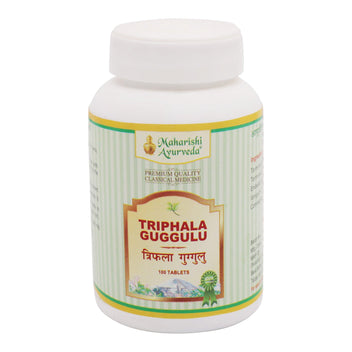
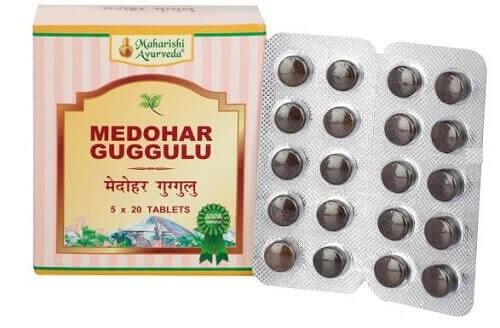




 Popular Read
Popular Read





































